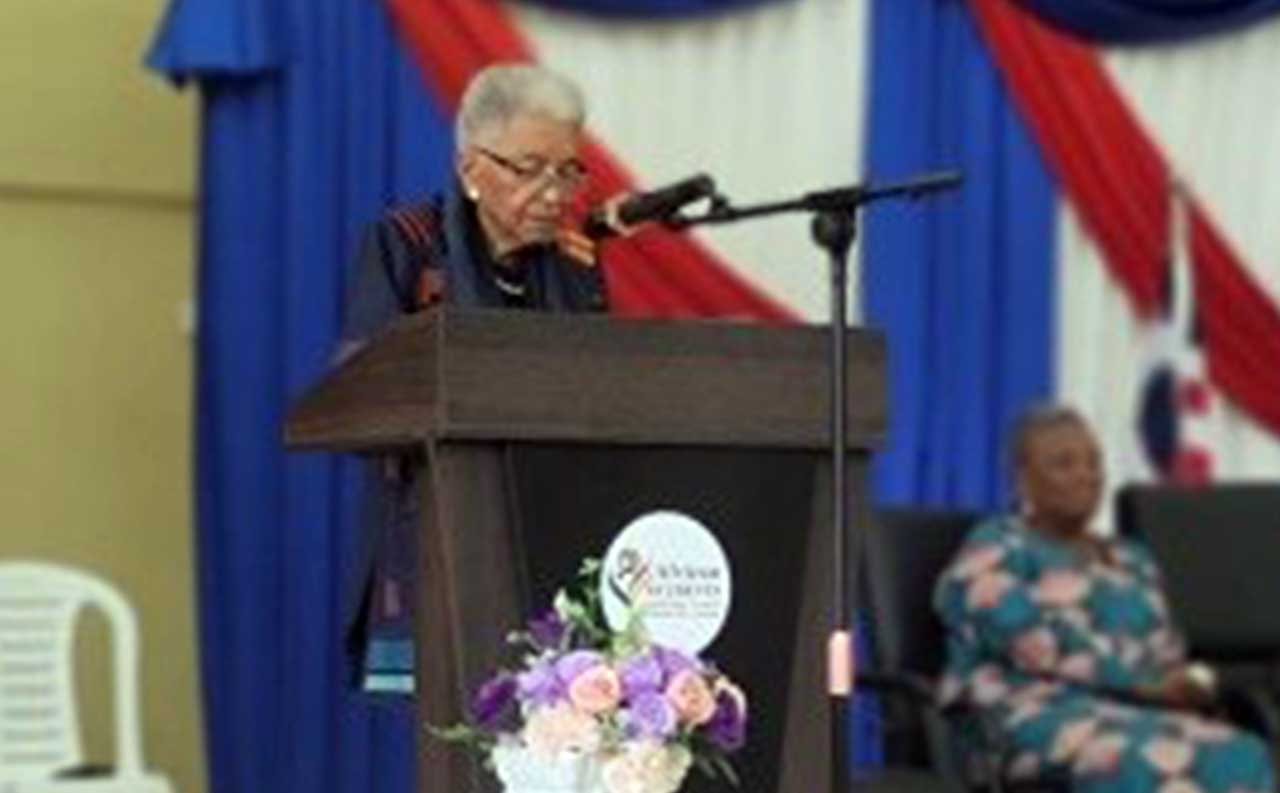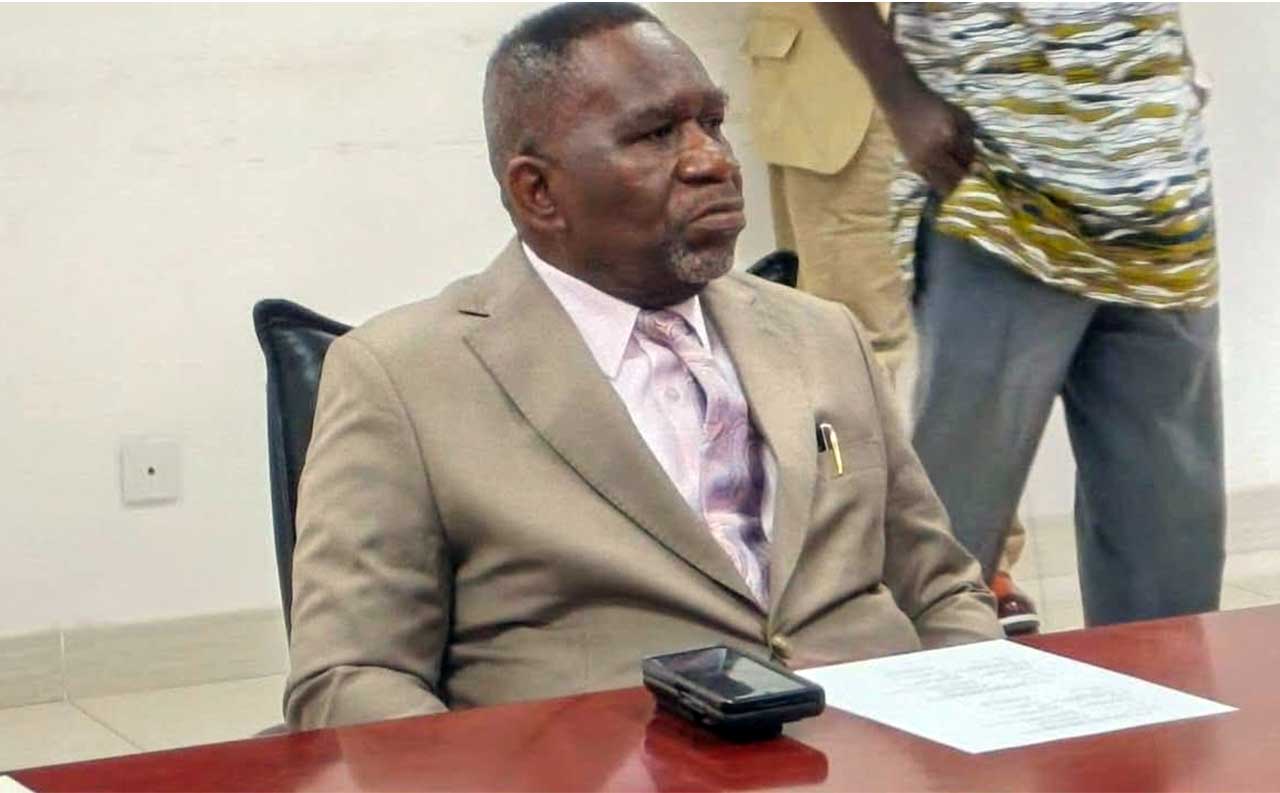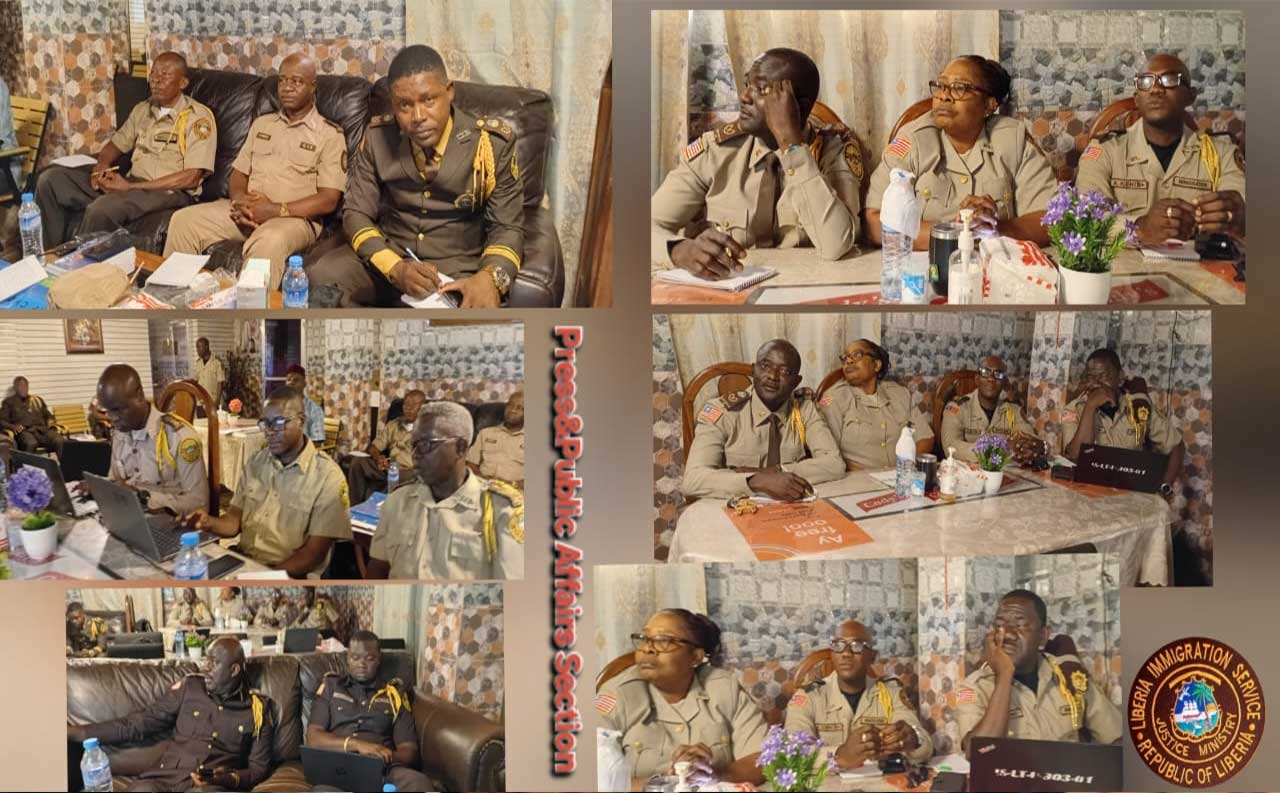Former Liberian President, Ellen Johnson Sirleaf on Tuesday, November 25, 2025, delivered a forceful and unapologetic defense of one of the most controversial decisions of her administration, the mandatory cremation of Ebola victims, arguing that the policy prevented the nation from facing a death toll once projected to reach one million. Speaking at the 1st African Students Leadership Forum in Thinker Village, Paynesville, Sirleaf revisited the chaos that engulfed Liberia during the 2014–2016 Ebola epidemic, insisting that the suffering, panic, and rapid spread of the virus demanded “painful, unpopular, but necessary actions.”
She reminded young leaders gathered in a packed auditorium that Liberia was in a state of national terror as thousands died, and grim international forecasts warned that the country could lose a million people if drastic interventions were not taken.
“You all know how people were dying,” Sirleaf said. “You all know the prediction that Liberia would lose one million people.” The former President revealed that intelligence reports showed that unsafe burials were fueling the spread of the virus, leaving her administration with what she described as no choice but to impose strict measures.
According to her, there came a time when her government discovered, because of the manner in which some of the citizens were being buried, “My government had to make a decision.” The cremation directive triggered national outrage, with communities, religious leaders, and traditional authorities condemning it as an assault on Liberian culture, but Sirleaf insisted the government did not act out of disrespect, but out of urgency to save lives.
“We had to do cremation. There was loud protest. ‘This is not our way of doing things. This is not our habit. This is not our law,” she added.
Faced with intense backlash, she said backing down would have been irresponsible and deadly. The ex-President said, “Was I to give in to all that? No. Because if I did not give the orders for cremation, many more Liberians would have died.” Sirleaf used the moment to challenge young leaders to be bold, principled, and decisive when confronting national crises; noting that leadership is not a popularity contest.
Also, she acknowledged missteps during her tenure and admitted that some officials acted outside ethical boundaries.n “There are many people in my government that did certain things that went astray from the principles of the government; though she declined to name them. She disclosed that some were removed from office for violations of public trust.
According to her, “There were times when we had to say no, when we had to take the position away because they had violated the principles on which we stood.” Sirleaf emphasized that leadership must be rooted in values, integrity, and the courage to make hard choices, even at the cost of public approval.
“So just be the one that makes a decision that stands by what you believe in, that stands on your values, that stands on what is right,” she urged the gathering. The 1st African Students Leadership Forum brought together students, youth leaders, academics, and policymakers to discuss governance, ethics, and youth participation in nation-building.
Meanwhile, the former President has called on young people to embrace discipline and purpose-driven leadership as they prepare to inherit the responsibilities of nation-building. Sirleaf told hundreds of students that they represent the “generation that will carry the nation forward” over the next five decades.
In her address, the former President outlined ten critical pillars she believes will shape Liberia’s next generation of leaders, commitment to home, education, knowledge of country, respect, discipline, wise friendships, community service, moral courage, positive engagement, and strong faith. She urged the students to always remember their roots, stressing that Liberia becomes stronger “when every young person commits to contribute something positive, an idea, a skill, a service, a dream.” Calling education “a passport to opportunity” and “the light that will guide you through any darkness,” the ex-President encouraged them to study hard, ask questions, and push themselves beyond their limits.



